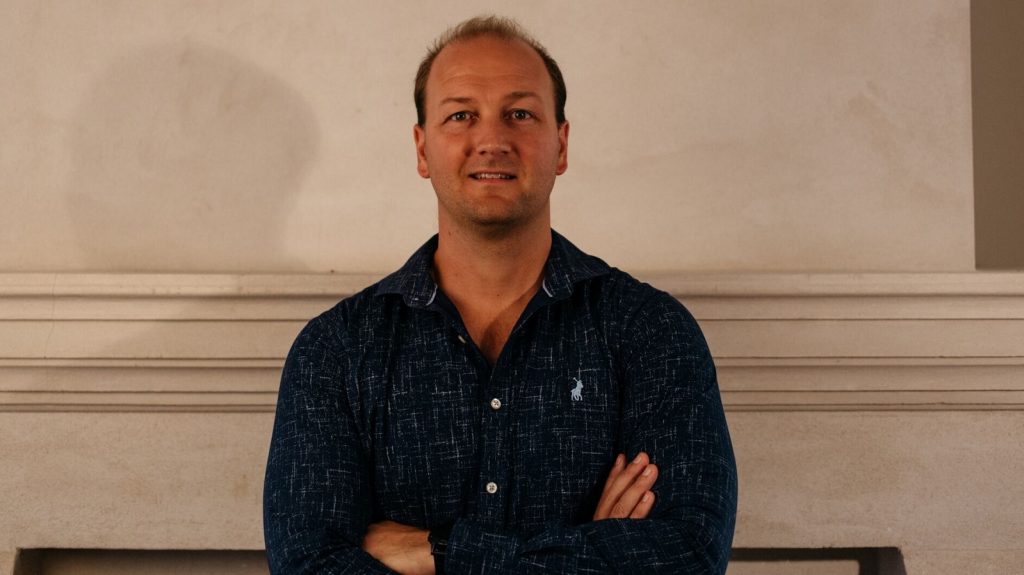With today’s discerning consumer demanding that their wearable tech be as functional as it is fashionable, the HUAWEI WATCH GT 5 Series steps boldly…
HouseMe investor Geddes Capital secures R200m debt facility from UK company

Cape Town based financier Geddes Capital — which last year invested in SA startups HouseMe and Seon — has secured R200-million from a UK company to lend to small businesses.
Geddes Capital CEO Brent Geddes (pictured above) told Ventureburn in a phone call yesterday that the lender and investor secured the R200-million from a UK-based company, Hyson Lucky Dragon, after he met the founder last year in Cape Town.
Geddes said the new facility will help the financier, which he founded in 2017 (he was later joined by partners Craig White and Warren Deats), to ramp up lending to local small businesses.
He says the financier is already in discussion with four or five companies, all in the fast-moving consumer goods sector. It’s a sector which Geddes, who owns a pomegranates farm in nearby Wellington, is very familiar with.
Geddes Capital which has invested in SA startups Seon and HouseMe, has secured R200m from UK-based Hyson Lucky Dragon
So far the financier has lent R60-million to 45 businesses — through secured loans of between R500 000 to R7.5-million, repayable over three to 18 months.
Those funded include businesses in various sectors — from logistics, to farming to clothing and manufacturing. About 60% of those the financier has funded are based in Cape Town, with the remainder located in Durban and Gauteng.
Most of the small businesses he’s funded have come to the financier via a network of accountants and lawyers. At present Geddes says he and his business partners fly to Johannesburg or Durban when they need to approve deals there.
Interest rates of up to 42%
But it doesn’t come cheap. At an interest rate of 2.5% to 3.5% a month (an annual interest rate of between 30% to 42% a year) Geddes admits his finance itn’t anywhere near as affordable as a bank loan.
While the loan agreement can include a bullet repayment, Geddes says he isn’t a fan of pushing the term period beyond 18 months, because of how costly it will become for the client to service the loan.
Financiers like Geddes (and bigger operations like Business Partners) benefit because of the large amount of red tape and long waiting times that many small businesses in South Africa have to contend with when seeking a bank loan.
Equity stakes in Seon, HouseMe
Geddes Capital has used the proceeds from interest it’s made off lending to small businesses, to take equity stakes in local startups — with the financier taking part in a funding round late last year involving SA proptech HouseMe (see this story).
Geddes Capital committed R3-million in the round which it participated in with other investors.
In addition, Geddes said his financier has also been providing the startup with a monthly revolving bridging capital facility of about R100 000, which the startup lends out and then repays, in an arrangement that ends next month.
The financier also invested R1-million in Seon, a company founded by Moroccan born Samia Haimoua and three German co-founders in 2017 which has developed a wearable panic button device (see this story).
Fintech platform plans
Geddes revealed that he and his partners are looking at setting up a tech platform — similar to that of startups such as a Lulalend — to make it easier to service the high demand from small businesses for loans.
However, he points out that this will likely only be for smaller sized loans — such as those under R500 000. It’s more difficult to lend out larger-sized loans that demand more due diligence and interaction from his team, he explains.
In addition, he’s also keen to create a lending or investment product for amounts of above R10-million, pointing out that most private equity funds in South Africa are loathe to consider investing anything below R20-million let alone R50-million in local medium-sized firms.
It’s not bad going for a farmer and former investment banker (with over 10 years experience with Rand Merchant Bank), whose interest in funding small businesses was peaked when he was asked by Pick n Pay to get involved in a supplier development initiative.
It’s got him keen in investing in a bouquet of artisanal health and food companies that supply local retailers and building this up into an offering he can later look at selling on to bigger investors.
South Africa needs more financiers like Brent Geddes willing to lend to those banks don’t want to — even if such finance may cost many small businesses an arm and a leg.
Read more: HouseMe secures ‘multi-million’ rand deal, declines to reveal who investors are
Read more: How Moroccan entrepreneur chose SA to launch wearable security device Seon
*Correction: While Brent Geddes runs a pomegranate farm he does not have a canning facility. We have corrected the story.
Editor’s note (15 August 2019): Subsequent to the publication of this story, Geddes explained that before starting Geddes Capital he had worked for Rand Merchant Bank for over 10 years.
Disclosure: Stephen Timm matriculated in 1996 from Cape Town’s Westerford high school in the same class together with Geddes Capital CEO Brent Geddes.
Featured image: Geddes Capital CEO Brent Geddes (Supplied)

